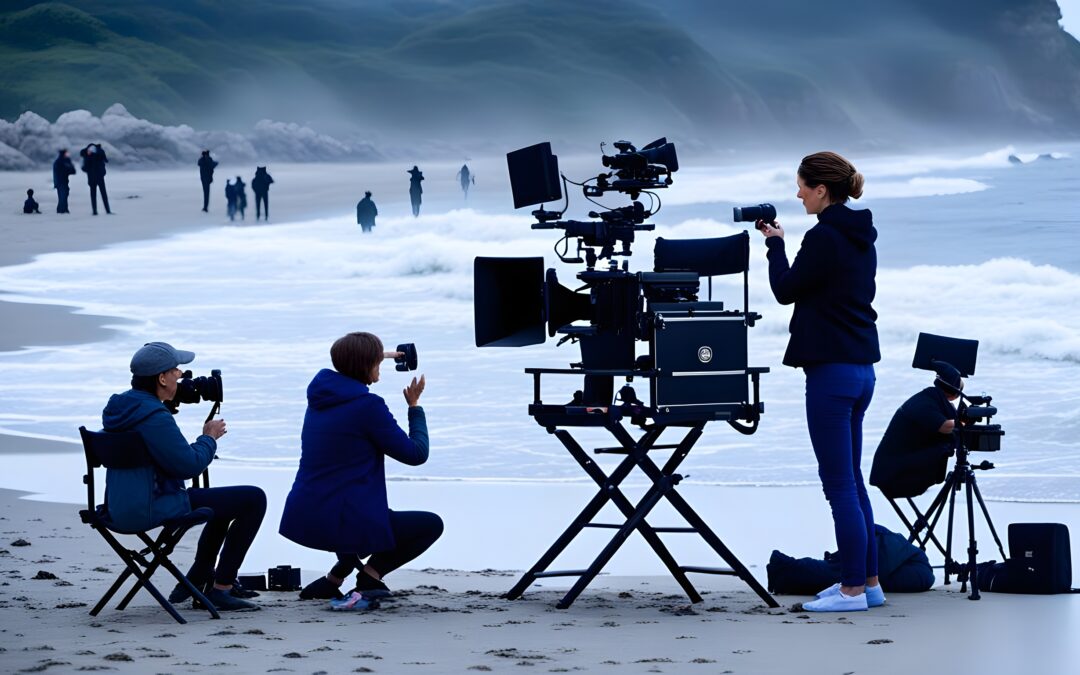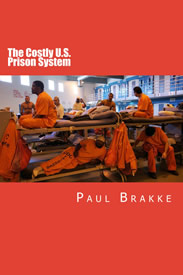Now that I’ve written several dozen screenplays and produced 19 films, I realized that directing a film is like making decisions and guiding your life.
Much like making good decisions to create a great film, making good decisions can help you live a much better life, better achieve your goals, and experience more abundance and prosperity.
So with that in mind, here are some suggestions for creating a great film…uhhh…life!
To start, imagine you are the director, not just the lead actor, of your life. This way, you aren’t taking directions from anyone else or don’t feel directionless, not sure of what to do. Rather, you feel empowered because you are in charge. As the director of your life, you have control over who stars alongside you, the settings you are in, the storylines you pursue, and how the ending unfolds.
So ask yourself: Are you actively directing or are you letting others dictate the production of your life? If the answer is no or you aren’t sure, you want to quickly take charge to chart your own direction.
Here’s how to take charge of your life’s movie and create a blockbuster you can celebrate.
Writing the Script
Every film starts with a script which defines its narrative arc. So start by thinking about your life’s narrative. Ask yourself:
· What’s my life’s script? What story do I want for myself?
· Where do I want to go?
· Who are the main characters that are most important in my life?
· What do I want these characters to do?
· What is their relationship to me and to each other?
· What are my main goals:
· How do the various characters in my life contribute to achieving my goal or are any characters holding me back? This way, you can give the characters that help you more lines and activities in your life, while you can reduce the number of lines or even write the characters that hinder you of the script.
Also, consider if you are repeating old lines that no longer serve your story, or if you are actively writing new plot lines. Every day offers the chance to revise your story.
Here are some ideas to help you write a good script for your life:
Journal daily to track the storyline of your life. What themes keep emerging? Are they in line with the story you want to tell?
Set goals and affirmations that guide the next chapters of your life. Speak and act in ways that reflect the narrative you want to live. Don’t be afraid to improvise! Some of the most memorable scenes in films come from unplanned moments. Likewise, taking advantage of events that you don’t expect can result in exciting new activities and directions in your life.
Casting the Right Actors
Every great film has a strong cast. Just as a director chooses actors who bring out the best in the story, you can choose who plays a role in your life. Surround yourself with people who uplift, challenge, and inspire you. Let go of those who drain your energy or bring negativity to your life.
Here are some suggestions to help you in choosing and interacting with the right actors in your life story:
Reflect on your current relationships. Are they enriching your story or holding it back? Make more room in your life for individuals who offer supportive and positive influences.
Express gratitude for those who play positive roles and consider gentle but firm boundaries for those who don’t.
Remember that not everyone needs a starring role — some people are better suited for brief cameos.
Designing the Settings
The setting of a film shapes its mood and direction. Your physical environment — your home, workplace, and the places you frequent — has a major impact on your mental and emotional well-being. So consider your surroundings and ask yourself if they are aligned with the story you want to tell. If so, great. If not, make changes in your environment and even leave it to move to someplace more compatible with who you are and where you want to be. Here are some ideas to guide you:
Declutter your space and create an environment that reflects your values and goals.
If you feel stuck in an uninspiring location, explore ways to shift your surroundings, such as by redecorating, moving, or spending more time in places that energize you. Think of your settings as more than physical places. Cultivate virtual and emotional spaces that bring you peace and joy.
Directing the Scenes
Even the most brilliant script can falter if it isn’t directed well. Your actions, decisions, and interactions create the scenes that bring your story to life. How you handle each moment determines the quality of your film. Here are some thoughts to help you be a better life director:
Approach each day with intention. Before beginning your day, visualize how you want it to unfold.
When faced with challenges, think like a director. Ask yourself how can you turn this plot twist into an opportunity for growth? Maybe even rewrite the narrative, so you go in a better direction.
While having lots of action in a film can be exciting, every scene doesn’t have to be action-packed. Instead, the action can contribute to a great film if you spend time building up the characters and the plot, so there is more understanding of what is going on and why. This way, there is more motivation and reason for the action. Otherwise, with too much action, your life, like a film, can feel chaotic and exhausting. Your life can be filled with “too much drama.” Thus, just like a director can allow space for quiet, reflective moments that add depth to a story, you should include time for reflection about what you are doing and where you are going, so your path in life is aligned with what you want for your story.
Managing the Crew
Behind every successful director is a supportive crew. In a film, this includes the camerapersons, sound recorders, people setting up props, those handling the food, and many others, depending on the size of the production. Likewise, in life, you can have mentors, collaborators, professionals, and many others who help you succeed. Accordingly, consider if you have the right people on your crew and if you are utilizing your crew effectively. Some ways to determine if you are working with the right crew in life include the following:
Decide on the main crew members you want in your life.
Consider the different backgrounds of these main crew members, so you have a team with a variety of perspectives and skills.
Seek guidance from mentors and experts who can offer valuable perspectives.
Collaborate with others who share your vision and values.
Recognize and appreciate the contributions of those who work behind the scenes to support your journey.
Editing for the Happy Ending
Every great film undergoes editing to shape its final form. Similarly, your life requires reflection and adjustment. While you can’t control every event, you can control how you frame them. Here are suggestions for making changes and adjustments in your life, as external changes impact you and you think of better ways of doing some things.
Reframe setbacks as steppingstones. Every great film has moments of conflict that lead to triumph.
Take time to reflect on the major events that will be happening in your week, month, or year. Consider what scenes you would cut, and what you would amplify.
Regularly check in on your progress, and don’t hesitate to reshoot or make changes in the parts of your story that didn’t go as planned.
Choosing Your Genre
Is your life a comedy, a drama, an adventure, or a blend of many genres? The genre you choose affects how you interpret and respond to events. Or perhaps combine genres for even better results. Here are some ideas for choosing or changing the genre of your life’s script.
If your life feels overly dramatic, consider changing the characters who are providing more unwanted drama. Also, think of ways to inject humor and lightness into your story, such as being able to laugh about some difficult situation after it’s over.
Embrace adventure by seeking new experiences that push you out of your comfort zone.
Remember that even tragedies can have moments of beauty and redemption.
Premiering Your Film
Every film deserves its premiere — a moment to celebrate its creation. This celebration is a time to bring together the major cast and crew members in the film to take their bows to the audience. In life, this celebration is a time to acknowledge your accomplishments and share your story with others. To this end, you can do the following:
Celebrate milestones, both big and small, to mark your progress.
Share your journey with trusted friends and loved ones who can cheer you on.
Reflect on how your story can inspire others to direct their own life.
Summing Up: Your Creation, Journey, and Legacy as a Director of Your Life
As the director of your life, you have immense power and responsibility. Every decision — big or small — contributes to the masterpiece you’re creating. By consciously writing a meaningful and powerful script, casting the right people, choosing your settings, directing with intention, managing your crew, and doing a successful edit, you can craft a story that you find very satisfying, because it features the main plot points you want in your life. Whatever script you write for your story also guides the goals you set and celebrates your achievements. Your story can subsequently resonate strongly with others and inspire them to design and direct their own life journey.
So go ahead. Start directing or redirecting your life as your film, and make it into the type of film you want.
My Own Journey Leading to This Article
Since the inspiration for this article has come from developing and producing my own films — 19 so far, with 18 in distribution, along with a series of books for American Leadership Books and games for ALB Games, here’s a more detailed description of these projects.
The books include The Big Con about a book-to-film scam and I Was Scammed, featuring the victims of several dozen scams. These books were turned into the films Conned: A True Story and Con Artists Unveiled. The games include Scamalot, about several dozen scams and how to avoid them and Life Behind Bars and Love in Prison, inspired by the books Women with Partners in Prison and Women in Prison.
All of these books, films, and games are available on Amazon.
For more information on these projects and to set up interviews, email or call:
Karen Andrews
Executive Assistant
Changemakers Podcasts
Changemakers Publishing and Writing
San Ramon, CA 94583
(925) 804–6333
changemakerspodcasts.net
changemakerspublishingandwriting.com




